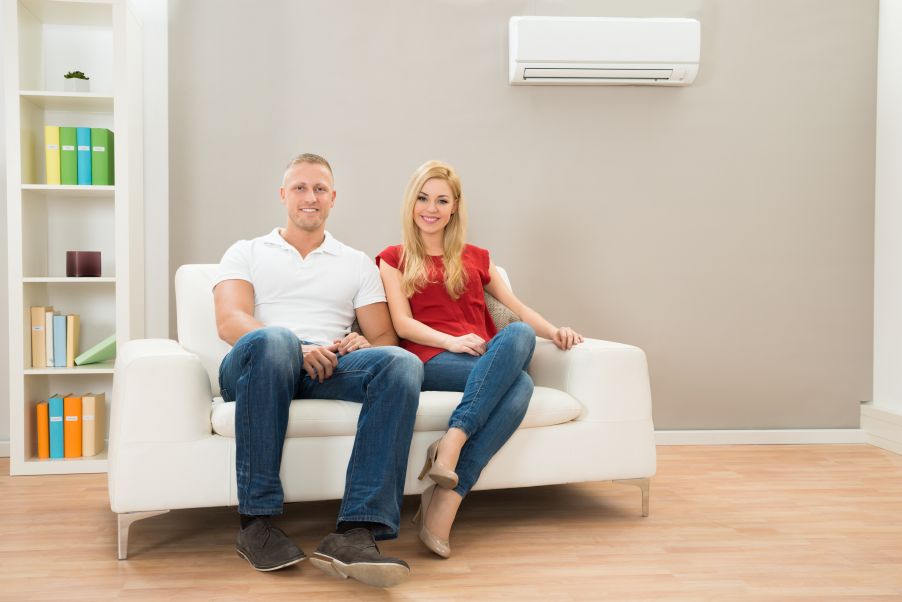Is an Air Conditioner for Rental Property a Good Investment – or Not?
We all know about those hot sticky nights when there is little or no breeze, and the humidity is stuck on 98%. Sometimes there is no alternative other than to run the air conditioner all night. The risk of waking up grumpy is just not an attractive option!
But what if you are renting a property, and there is no air conditioner? Along the same lines, what if you own a rental property, and it’s not airconditioned? What are your rights as a tenant of a Queensland rental property? Conversely, what are the expectations on a landlord to install an air conditioner in your rental property?
What do you think about putting air conditioner into a rental property?
As you may expect, it all comes down to the numbers. Whether an air conditioner is a good investment comes down to a couple of things. Its’ value can be assessed in terms of up front cost, as well as the time to pay back the investment.
Each year we can expect a couple of months of really hot weather, and some of just plain hot weather! So there’s no doubt that a rental property with an air conditioner is going to be more attractive to prospective tenants. In addition, we can consider those colder months of the year when heating is desirable. We therefore can begin to build a case for a reverse cycle air conditioner that can be used all year round.
What is the pay back time for an air conditioner in a rental property?
A typical reverse cycle air conditioner costs around $3000 – $4000 to have installed. This is quite a reasonable outlay for a split system, reverse cycle air conditioner. Such a system can heat or cool the living areas of a small home, or an apartment. Let’s say that for the moment you get an extra $20 to $30 per week rental income for your investment property, because it is more desirable with air conditioning installed. This rental return means that you should be able to pay off the cost of installation within or around 3 years. There are also some tax benefits on this investment that can also be considered in the pay back period. Check with your property-savvy accountant for the facts on this. They will pertain to your particular situation.
But there are other hidden benefits also!
There is little doubt that an air conditioner for rental property makes the property more desirable for tenants. Property managers always find that there is extra demand for rental properties with air conditioning installed. The real benefit here is that the property manager has a larger pool of prospective tenants to choose from.
More attractive rental property – better tenancy rates
Therefore the landlord gets the benefit of choosing from the best tenant applications. This increases the chances of securing the best tenant for the property. At the end of the day, finding the best tenant for the property is the key to a good investment property. This is because a good match ensures the tenant is happier, and the property is leased and better looked after in the long run.
But what does all this mean in terms of rental return?
When discussing the cost of installing air conditioning in a rental property, there is a third factor at play in the pay back time. The pay back time is dependent on securing long term tenants, and minimising the vacancy rates. If you have ever experienced a lengthy term of vacancy in your rental property, you will know that it can become very costly in terms of your investment income. So here is the potential benefit from installing an air conditioner for rental property. When the landlord can increase rental by a small amount per week, but also ensure good long term tenancy rates, this can be far more beneficial in the long run. There is no doubt that a landlord gains a better long term investment return by minimised vacancy rates, rather than by increasing the rent.
Does an air conditioner for rental property increase the capital value?
Unfortunately, this is probably not a good reason for justifying the outlay of money. Obviously the installation of air conditioning in your rental property can be a serious investment in terms of capital. Note though that the potential increase in capital of the property is, at best, only likely to be the same as the amount of money outlaid. Over time, as the air conditioner ages and the value of the appliance decreases, there is potentially less likely to be any increase in property prices due to the installation of air conditioning. They can even become a liability if they don’t work.
What if a tenant requests an air conditioner?
So the numbers discussed above show a favourable argument for an airconditioner for rental property. However, when a tenant requests an air conditioner be installed in a rental property, this can still be a conundrum for landlords.
It will generally depend on personal factors and circumstances for a property owner. The owner’s particular investment strategy can also come into play. It can also depend upon the market at the time. Despite the ‘upside’, it can still be a big decision whether to install air conditioning into a rental property. If investing long term, it is attractive to secure a good long term tenancy and maintain low vacancy rates. An air conditioner for rental property can help with this.
What if the property owner is trying to maximise the capital investment purely in terms of financial return? The numbers can then be a little trickier to justify.
However, there may be a compelling reason to install air conditioning if other properties in the area already have air conditioners installed.
Depending on personal circumstances, there is always a potential benefit to be gained from depreciating the capital assets when you own an investment property. Be sure to check with a property savvy tax accountant to ensure that you do not overlook any rental property tax deductions. This may extend down to the costs of regular servicing and maintenance of the air conditioning units, as these costs can be considered reasonable business expenses.

Can you increase the rent for installing an air conditioner?
Can you increase the rent if the tenant asks you to install an air conditioner? Yes, the answer is that you can negotiate an agreeable rental increase. It is also important to look ahead to the longer term benefits.
Don’t try to gouge your tenant with rental increases. This may not turn out to be such a good investment in the short term.
What if your tenant decides to seek alternative accommodation after the summer heat has passed? You may be left with an unexpected vacancy. Then there would be no rental income to cover the cost of the air conditioner. The better alternative is to keep your tenant happy. This will serve to retain a longer lease agreement to keep the property rented in the longer term. There is little doubt that maintaining high tenancy rates is preferable in terms of investment. This will avoid the costs associated with selecting new tenants at the end of every lease.
An air conditioner for rental property can be a very good investment, indeed.

